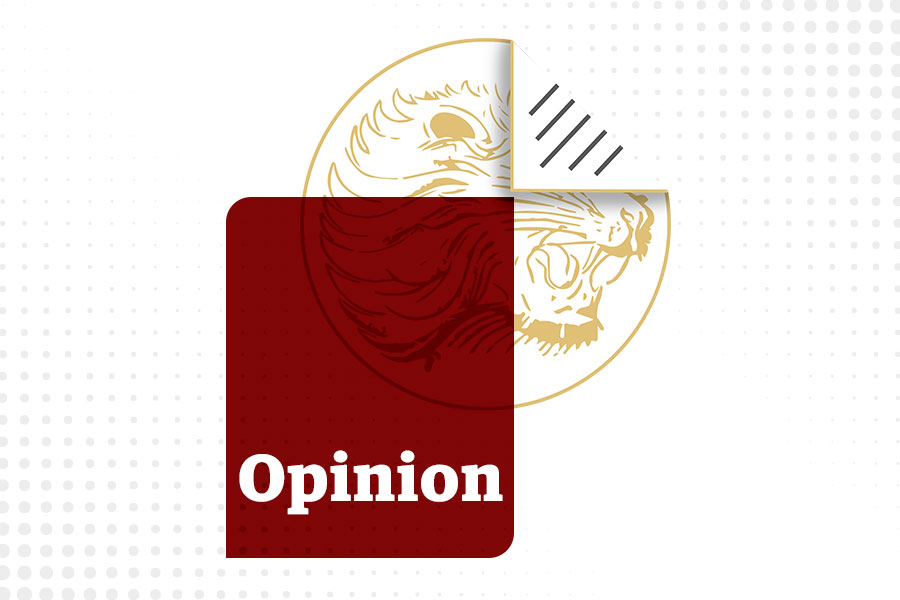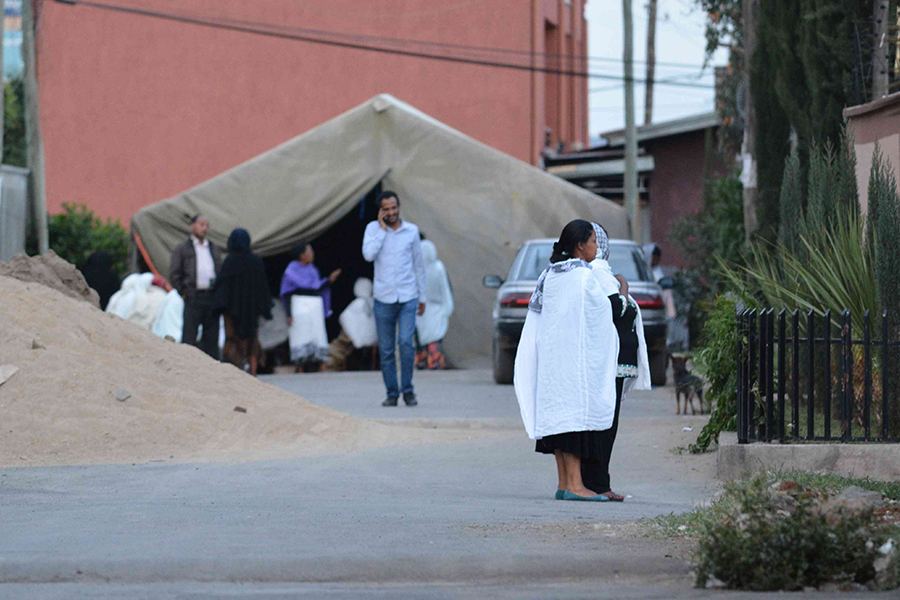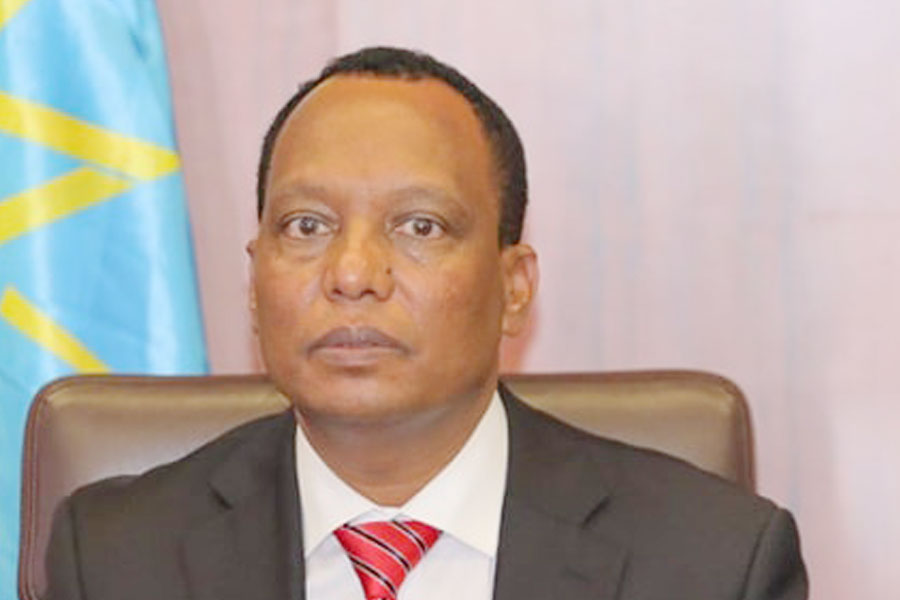
My Opinion | Apr 22,2023
Oct 20 , 2024.
Central Bank authorities have unveiled no less than six new guidelines to fine-tune the foreign exchange market, following their bold decision in late July 2024 to liberalise the exchange regime. Abandoning the practice of setting daily exchange rates for a basket of currencies, and instead allowing banks to determine their own rates, was perhaps the most consequential monetary policy shift the country has seen in half a century.
Policymakers have historically been inclined to maintain a firm grip on the money market. In a country where the median age is 19, most Ethiopians have known only a tightly controlled financial system.
The aftermath of liberalisation was anything but serene. Confusion and impulsiveness reigned within the banking industry. Foreign exchange managers and their bosses appeared out of their depth, evidenced by erratic rates and spreads between buying and selling that gaped as wide as 16pc. A directive from the National Bank of Ethiopia (NBE) only added to the turmoil. A few days after the liberalisation, the authorities compelled banks to include all forex-related fees and commissions within their spreads, a move that inflated the value of the Birr against other currencies to untenable levels.
This dampened the Central Bank's sense of triumph, albeit briefly, in narrowing the gap between the official and parallel forex markets down to four percent.
Recognising the misstep, the Central Bank rescinded the guideline last week, a rare admission of error from bureaucrats ensconced in policymaking thrones. They acknowledged "lessons gained from experience" and "inputs received from the banking sector." In a partial retreat, they revised the policy to require forex traders to separate commissions and fees from the daily posted rates and to report them accordingly. A two percent cap was imposed between buying and selling rates, adhering to traditional regulatory instincts.
Yet, this oscillation brought to the fore a broader lesson from the Central Bank's policy swings over the past three months.
Policymaking can often resemble herding cats: perplexing, chaotic, and full of unintended consequences, a veritable law of complications. A meticulously crafted policy might seem the perfect solution to a complex issue, but it is often in the fine details that real troubles emerge. Governor Mamo Mihretu and his team have demonstrated that noble intentions can become ensnared in intricacies, risking the initial goal of correcting distortions in the forex market.
Consider another policy that has placed the Central Bank under pressure, requiring exporters to convert half of their foreign exchange earnings into Birr within 30 days. Targeting to bolster the value of the Birr during a time of rapid depreciation since the currency was floated, the intentions are clear. The Governor and his people would want to strengthen forex reserves, control inflation, and attract foreign direct investment, all in conformity with macroeconomic reforms tied to a deal with the International Monetary Fund (IMF).
However, exporters, who ostensibly benefit most from the policy change, are vociferously complaining about the rigid timeframe. They argue that the forex retention policy disregards the practical realities of business operations.
Compounding the issue is a pervasive liquidity crunch afflicting the market, exacerbated by commercial banks' struggles to comply with a credit cap imposed by the Central Bank in its bid to tame inflation. The unintended consequence has been to discourage exporters from converting their foreign earnings, feeding into a broader public perception that holding wealth in Birr is a losing proposition over time. This is the dreaded pit of public perception, where even the most logical policies can falter if they fail to resonate with the public.
The overriding objective of reforming market distortions should be to reorient macroeconomic foundations towards creating highly productive sectors and enabling robustly competitive industries. Exporters are envisaged as prime drivers of this ambition, yet they perceive the policy as working against their interests. Many voice suspicions that these measures are being imposed under the influence of international financial organisations like the IMF and lament the "illusion of one-size-fits-all" solutions.
The temptation for policymakers to believe that a remedy effective in one area can be universally applied could be potent, but this is where complications arise.
The forex policy, driven by the urge to close the gap between official and parallel markets, has weakened the Birr against major currencies. Some commercial banks, such as Gadaa Bank, posted a historic high buying rate of 128.9 Br to the dollar last week. The industry average has surged by 108.4pc since the exchange market was opened to competition. The collateral damage is felt most acutely by those in fixed-income groups, whose earnings have remained stagnant while prices have soared due to exchange rate fluctuations.
In the unpredictable realm of policymaking, officials like Governor Mamo need strategies that account for the human element. The allure of quick fixes, that seductive notion that a sharp policy instrument can swiftly resolve intricate issues like market distortions, often leads to unintended and painful outcomes. Misconceptions about the forex market policy are rife, calling for timely and effective communication from the authorities on Sudan Street. While they may feel a sense of complacency, convinced that their policies have yielded immediate results, measures designed to address market distortions and curb inflation could, in the long run, exacerbate the very problems they aspire to solve. Quick fixes are tempting but rarely sustainable.
A more flexible, phased approach could balance the need for macroeconomic stability with the long-term viability of vital sectors. Acknowledging the concerns of exporters and commercial banks is crucial to ensuring that policies achieve their intended goals without sacrificing economic growth. Yet, it is disheartening to observe that the current administration's policymakers appear disconnected from the daily struggles of those bearing the brunt of their decisions — choices that trade long-term growth for fleeting gains.
The measure of success should not be the boldness of policies enacted but the tangible improvements in Ethiopians' lives. Sustainable growth, equitable prosperity, and economic resilience should be the meaningful benchmarks. Achieving these will require patience, pragmatism, and perhaps a willingness to admit when a course correction is needed.
PUBLISHED ON
Oct 20,2024 [ VOL
25 , NO
1277]

My Opinion | Apr 22,2023

Commentaries | May 08,2021

Radar | Oct 14,2023

My Opinion | Mar 20,2021

Agenda | Jul 21,2024

Fortune News | Jul 19,2025

Verbatim | Jun 21,2025


Fortune News | Jul 03,2024

Exclusive Interviews | Nov 21,2018

Photo Gallery | 178791 Views | May 06,2019

Photo Gallery | 168988 Views | Apr 26,2019

Photo Gallery | 159836 Views | Oct 06,2021

My Opinion | 137115 Views | Aug 14,2021

Dec 22 , 2024 . By TIZITA SHEWAFERAW
Charged with transforming colossal state-owned enterprises into modern and competitiv...

Aug 18 , 2024 . By AKSAH ITALO
Although predictable Yonas Zerihun's job in the ride-hailing service is not immune to...

Jul 28 , 2024 . By TIZITA SHEWAFERAW
Unhabitual, perhaps too many, Samuel Gebreyohannes, 38, used to occasionally enjoy a couple of beers at breakfast. However, he recently swit...

Jul 13 , 2024 . By AKSAH ITALO
Investors who rely on tractors, trucks, and field vehicles for commuting, transporting commodities, and f...

Oct 25 , 2025 . By YITBAREK GETACHEW
Officials of the Addis Abeba's Education Bureau have embarked on an ambitious experim...

Oct 26 , 2025 . By YITBAREK GETACHEW
The federal government is making a landmark shift in its investment incentive regime...

Oct 29 , 2025 . By NAHOM AYELE
The National Bank of Ethiopia (NBE) is preparing to issue a directive that will funda...

Oct 26 , 2025 . By SURAFEL MULUGETA
A community of booksellers shadowing the Ethiopian National Theatre has been jolted b...